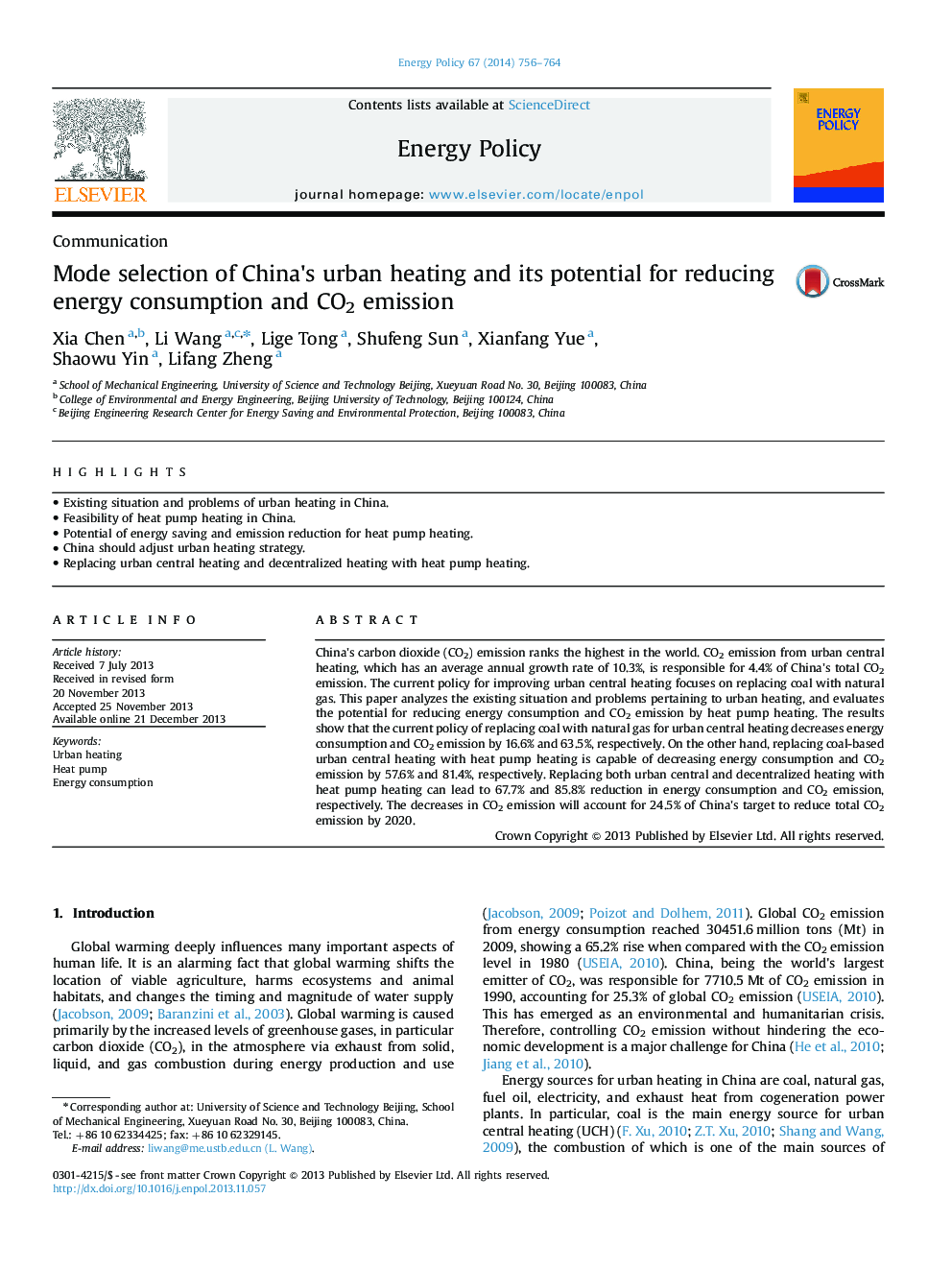| Article ID | Journal | Published Year | Pages | File Type |
|---|---|---|---|---|
| 7402718 | Energy Policy | 2014 | 9 Pages |
Abstract
China's carbon dioxide (CO2) emission ranks the highest in the world. CO2 emission from urban central heating, which has an average annual growth rate of 10.3%, is responsible for 4.4% of China's total CO2 emission. The current policy for improving urban central heating focuses on replacing coal with natural gas. This paper analyzes the existing situation and problems pertaining to urban heating, and evaluates the potential for reducing energy consumption and CO2 emission by heat pump heating. The results show that the current policy of replacing coal with natural gas for urban central heating decreases energy consumption and CO2 emission by 16.6% and 63.5%, respectively. On the other hand, replacing coal-based urban central heating with heat pump heating is capable of decreasing energy consumption and CO2 emission by 57.6% and 81.4%, respectively. Replacing both urban central and decentralized heating with heat pump heating can lead to 67.7% and 85.8% reduction in energy consumption and CO2 emission, respectively. The decreases in CO2 emission will account for 24.5% of China's target to reduce total CO2 emission by 2020.
Keywords
Related Topics
Physical Sciences and Engineering
Energy
Energy Engineering and Power Technology
Authors
Xia Chen, Li Wang, Lige Tong, Shufeng Sun, Xianfang Yue, Shaowu Yin, Lifang Zheng,
